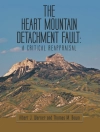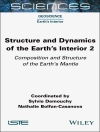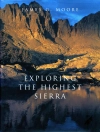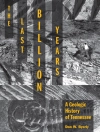The motivation for this volume came from the idea that the
Precambrian is the key, both to the present, and to the
understanding of the Earth as a whole. The Precambrian constitutes
about 85% of Earth’s history, and of that, about 3.75 billion years
of Precambrian time, represented by rocks, are accessible to
geoscientists. Ancient atmospheric and environmental conditions can
be traced back to the time when the Earth was only about 250
million years old. Precambrian rocks supply almost 75% of important
mineral resources such as Fe, Mn, Au, Pt and Cr. Many of these
elements are associated with sedimentary rocks and some important
hydrocarbon, coal and graphite deposits are also hosted by
Precambrian rocks.
This volume is aimed at geoscientists interested in Precambrian
sedimentary rocks and at students of Earth history. It contains
review articles discussing Precambrian conditions and case studies
from Precambrian shields and successions of North and South
America, Australia, Africa, Europe, Asia and India. The
introductory papers, written by experts on Precambrian
environments, treat comprehensively the application of actualism to
the Precambrian, the evolution and influence of life on the
sedimentary rock record, the genesis of Banded Iron Formations, the
Precambrian sulphur cycle and the significance of Precambrian
chemical carbonate precipitates. The case studies include
depositional settings and processes in Archean terranes, in
Paleoproterozoic sequences, with some emphasis on the lack of
vegetation and weathering, and in late Proterozoic sequences, with
some emphasis on glacial deposits. The contributions demonstrate
that Precambrian sedimentary deposits are commonly similar to their
Phanerozoic counterparts in terms of composition, sedimentary
processes, and depositional setting, but may differ significantly
as a result of lack of vegetation, climatic and biological
constraints, composition and circulation of seawater, and the
secular involvement of continental crust.
* * Contains review articles discussing Precambrian conditions and
case studies from Precambrian shields and successions of North and
South America, Australia, Africa, Europe, Asia and India.
* The introductory papers, written by experts on Precambrian
environments, treat comprehensively the application of actualism to
the Precambrian, the evolution and influence of life on the
sedimentary rock record, the genesis of Banded Iron Formations, the
Precambrian sulphur cycle and the significance of Precambrian
chemical carbonate precipitates.
* Detailed case studies include depositional settings and
processes in Archean terranes, in Paleoproterozoic sequences, with
some emphasis on the lack of vegetation and weathering, and in late
Proterozoic sequences, with some emphasis on glacial
deposits.
* Written for geoscientists interested in Precambrian sedimentary
rocks and students of Earth history.
If you are a member of the International Association of
Sedimentologists (IAS), for purchasing details, please see:
http://www.iasnet.org/publications/details.asp?code=SP33
Tabella dei contenuti
Introduction (W. Altermann & P. Corcoran).
Introductory Papers.
1. Actualistic Versus Non-Actualistic Conditions In The
Precambrian Sedimentary Record: Reappraisal Of An Enduring
Discussion (Donaldson, Eriksson And Altermann).
2. The Evolution Of Life And Its Impact On Sedimentation
(Altermann).
3. The Significance Of Iron-Formation In The Precambrian
Stratigraphic Record (Trendall).
4. The Isotopic Composition Of Precambrian Sulphides – Seawater
Chemistry And Biological Evolution (Strauss).
5. Decimetre-Thick Encrustations Of Calcite And Aragonite On The
Sea-Floor And Implications For Neoarchaean And Neoproterozoic Ocean
Chemistry (Sumner).
Case Studies.
6. The 2.7 – 2.63 Ga Indin Lake Supracrustal Belt: An Archaean
Marginal Basin-Foredeep Succession Preserved In The Western Slave
Province, Canada (Pehrsson).
7. Sedimentology Of A Tide- And-Wave-Influenced High-Energy
Archean Coastline: The Jackson Lake Formation, Slave Province,
Canada (Mueller, Corcoran And Donaldson).
8. The Effects Of Weathering, Sorting And Source Composition In
Archaean High-Relief Basins: Examples From The Slave Province,
Northwest Territories, Canada (Corcoran And Mueller).
9. Stratigraphic Evolution Of Archaean Volcanic Rock-Dominated
Rift Basins From The Whim Creek Belt, West Pilbara Craton, Western
Australia (Pike And Cas).
10. Syn- And Post-Eruptive Volcaniclastic Sedimentation In Late
Archaean Subaqueous Depositional Systems Of The Black Flag Group,
Eight Mile Dam, Kalgoorie, Western Australia (Hand Et Al).
11. Sedimentary Environment Of The Amphibolite-Grade Early
Proterozoic Keiva And Kukas Basins (North-East Baltic Shield):
Normative Mineral MINLITH Analysis (Rosen, Safronov And
Abbyasov).
12. Two Meta-Sedimentary Basins In The Early Precambrian
Granulites Of The Anabar Shield (Polar Siberia): Normative Mineral
Compositions Calculated By The MINLITH Program And Basin Facies
Interpretations (Zlobin, Rosen And Abbyasov).
13. Mixed Siliclastic-Carbonate Storm-Dominated Ramp In A
Rejuvenated Palaeoproterozoic Intracratonic Basin: Upper Hurwitz
Group, Nunavut, Canada (Aspler And Chiarenzelli).
14. Aspects Of Late Palaeoproterozoic Fluvial Style: The Uairen
Formation, Roraima Supergroup, Venezuela (Long).
15. Volcanogenic And Sedimentary Rocks Within The Svecofennian
Domain, Ylivieska, Western Finland – An Example Of
Palaeoproterozoic Intra-Arc Basin Fill (Strand).
16. Palaeoproterozoic Epeiric Sea Palaeoenvironments: The
Silverton Formation (Pretoria Group, Transvaal Supergroup), South
Africa (Eriksson Et Al).
17. Facies Sequence And Cryptic Imprint Of Sag Tectonics In The
Late Proterozoic Sirbu Shale, Central India (Sarkar Et Al).
18. Sedimentation And Tectonic Setting Of Early Neoproterozoic
Glacial Deposits In South-Eastern Brazil (Martins-Neto And
Hercos).
19. New Evidence Of Glacial Abrasion Of The Late Proterozoic
Unconformity Around Varangerfjorden, Northern Norway (Laajoki)
Circa l’autore
Wladyslaw Altermann is the editor of Precambrian Sedimentary Environments: A Modern Approach to Ancient Depositional Systems, published by Wiley.
Patricia Corcoran is the editor of Precambrian Sedimentary Environments: A Modern Approach to Ancient Depositional Systems, published by Wiley.












